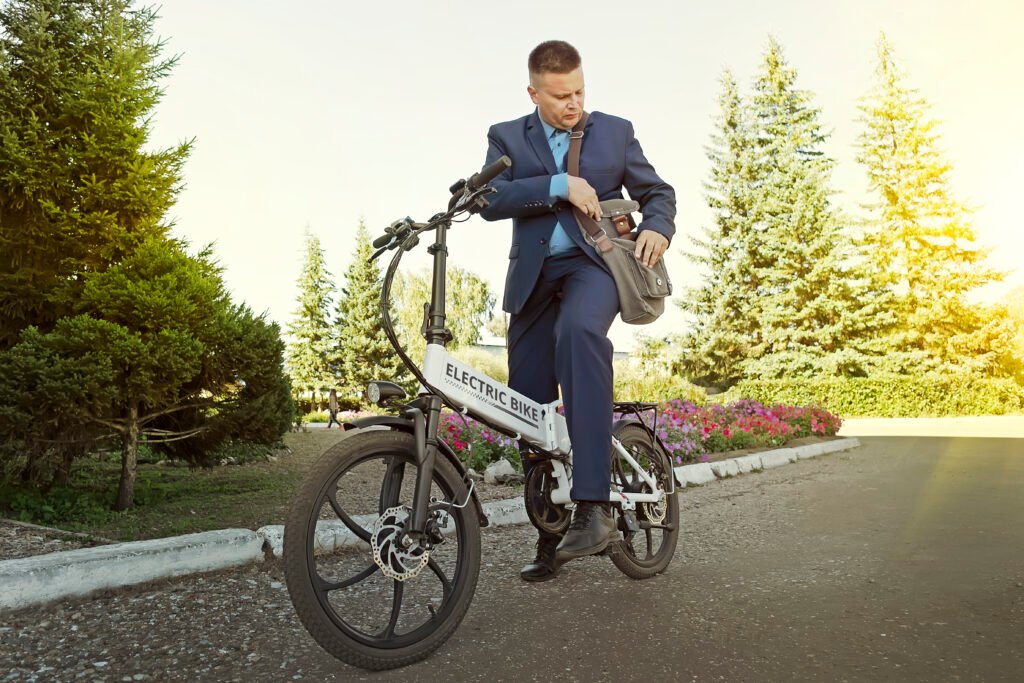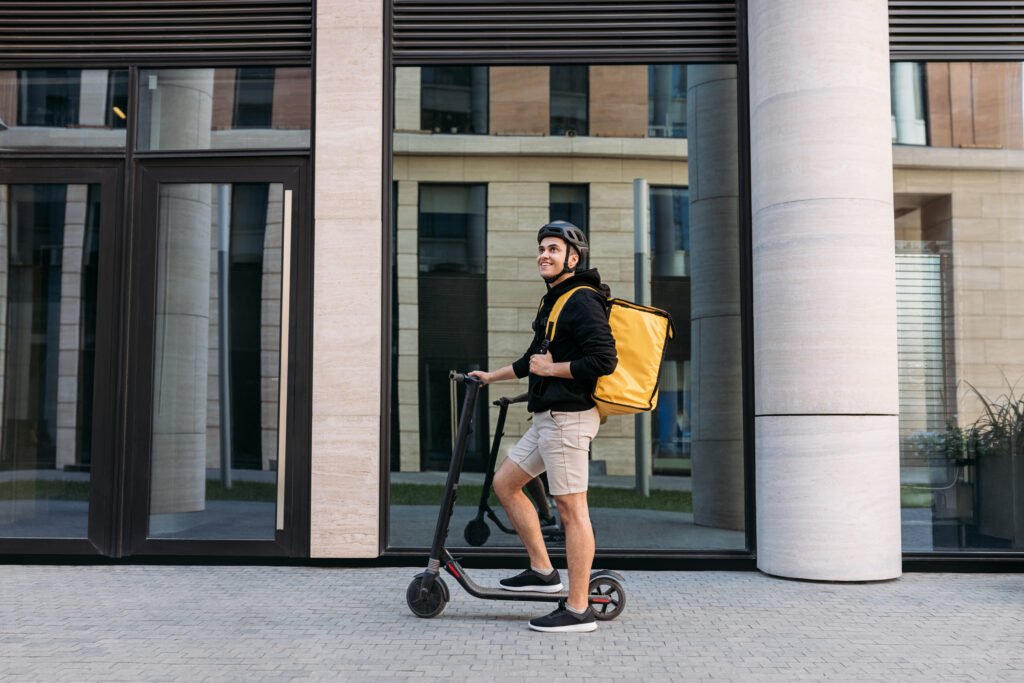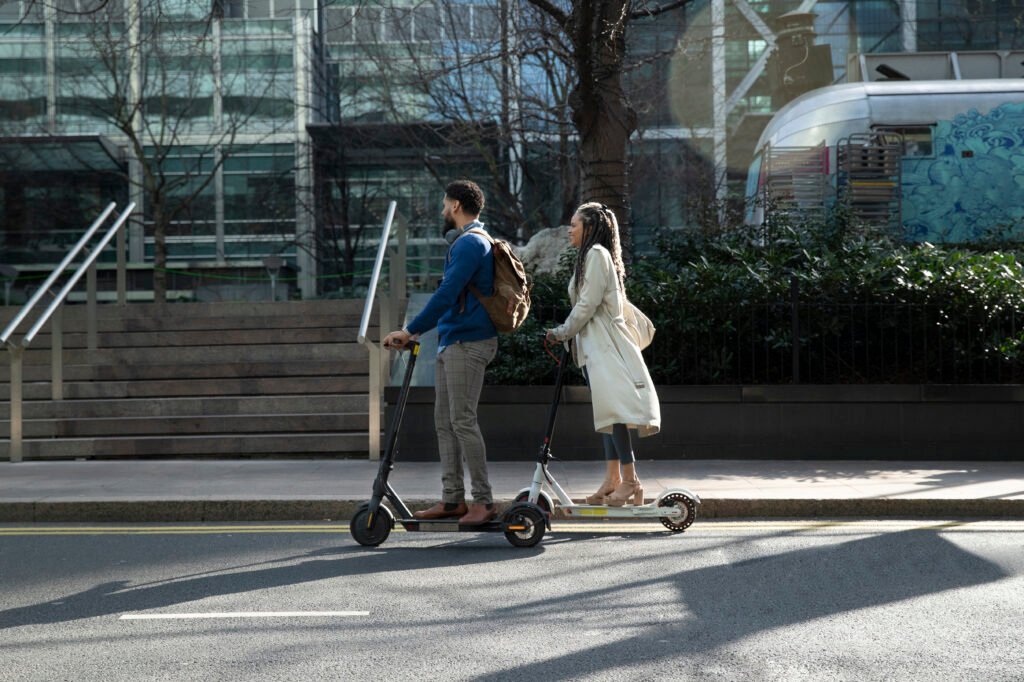Introduction to Electric Commuting Options
Choosing between an electric bike vs electric scooter for commute can feel overwhelming for city riders. With both offering eco-friendly, efficient, and modern transport solutions, how do you pick the one that truly suits your daily needs?
What Are Electric Scooters and E-Bikes?
Electric scooters and e-bikes are two of the most popular personal electric vehicle options for navigating city streets today. An electric scooter is a compact electric ride, typically standing and foldable, powered by a small electric motor. An e-bike or electric bicycle is essentially a standard bike enhanced with an electric motor and electric assistance, allowing the rider to pedal with less effort or not at all, depending on the mode.
Rise in Popularity of E-Bikes and E-Scooters for Urban Commuters
With the rise of urban commutes and eco-conscious lifestyles, more riders are turning to electric bikes and scooters to meet their commuting needs. Whether you’re facing a shorter trip to the office or managing longer commutes, the appeal of avoiding traffic, reducing carbon emissions, and integrating active while commuting elements has contributed to their surge in use.rs and electric bikes side by side to help you decide which one is the better fit for your daily life.

Speed, Battery Life, and Range
E-Bike vs E-Scooter: Top Speeds Compared
Electric bikes generally reach higher speeds than electric scooters. While e-scooters often top out around 15–20 mph, many electric bikes can reach speeds of 20–28 mph with pedal assist. That makes e-bikes a faster option for longer commutes, especially when using bike lanes.
Battery Life and Charging Times
When it comes to battery life, electric bikes often feature a longer battery capacity than scooters. This translates to better endurance for extended rides. While a folding electric scooter may take 3–5 hours to charge, an electric commuter bike might need 4–6 hours depending on battery size and motor type. Riders doing daily round-trips will appreciate the extra miles per charge offered by electric bikes.
Range Differences Between Scooters and Electric Bikes
Electric bikes offer ranges between 30 to 70 miles on a single charge, while electric scooters usually manage 15 to 30 miles. The range difference can be critical for anyone with variable or unpredictable routes. E-bikes are generally better suited for longer daily rides, while a scooter may be more practical for short errands or urban environments.
Cost Comparison and Long-Term Value
One of the major deciding factors between an electric bike vs electric scooter for commute is how cost-effective they are over time.
Are Electric Scooters or E-Bikes More Cost-Effective?
If budget is your priority, an electric scooter may be the more cost-effective choice. Basic models start under $500, while mid-range e-bikes often begin at $1,000 or more. However, over time, the electric bikes offer more utility and flexibility, which may justify the investment depending on your usage.
Upfront Cost, Maintenance, and Repairs
Beyond initial purchase, electric bikes or scooters come with varying maintenance needs. Scooters require fewer moving parts and often less maintenance. But electric bicycles, like any standard bike, need regular attention to pedals, brakes, chains, and gears. Local bike shops may be more equipped to service e-bikes than scooters, which may rely on proprietary or hard-to-source parts.

Comfort and Practicality for Daily Commuters
Riding Posture and Ergonomics
Riding an e-bike typically mimics the comfort of a commuter bike, offering a seat, larger wheels, and a relaxed riding position ideal for longer durations. In contrast, scooter riders often stand, which can become tiring over extended distances.
Portability, Storage, and Daily Use Challenges
In dense cities and apartments, foldable options like scooters shine. Their compact electric design makes them easier to carry, store, and use with public transit. The size of a scooter is advantageous when space is limited. However, electric bikes are generally heavier and bulkier, making them harder to transport or bring indoors.
Best Choice for Short Commutes vs Longer Daily Rides
For shorter trips, a foldable scooter may be ideal, especially if combined with other transport modes. For longer commutes, a commuter bike with electric assistance provides better endurance, speed, and overall efficiency.
Safety and Legal Considerations
Brakes, Lights, and Helmets: Key Safety Features
Both bikes and scooters must prioritize safety. Look for models with strong braking systems, integrated lights, and reflective components. Electric scooters offer great mobility but often skimp on advanced brakes. Electric bikes are generally equipped with better braking systems, making them safer at higher speeds.
Traffic Rules and Legal Use of E-Bikes and E-Scooters
Always check local regulations. In many cities, bike lanes permit e-bikes, while electric scooters tend to be more restricted. Traffic rules can also dictate helmet use, age limits, and where each ride type may operate. Respecting these rules is vital for rider safety and avoiding fines.

Environmental and Urban Impact
Electric Vehicles and Urban Sustainability
Switching to a personal electric vehicle reduces traffic congestion, air pollution, and parking challenges. Both ride types are part of a broader shift toward eco-friendly commuting and sustainable urban commuting solutions.
Are E-Bikes or Scooters the Greener Choice?
Electric scooters generally consume less electricity per charge due to smaller motors and lighter frames. However, their shorter lifespans and higher replacement rates may offset these advantages. Electric bikes often last longer, require fewer replacements, and serve more commuting miles, making them arguably more sustainable in the long run.
Final Verdict: Electric Scooter vs Electric Bike
Which Option Fits Your Commuting Style Best?
If your city commuting includes multiple transfers, tight spaces, and shorter trips, a compact electric scooter may suit you. But if you’re traveling longer distances, want more speed and comfort, and are willing to invest in long-term value, an electric bike is the better option for commuting.
Summary: Choosing the Best Electric Ride for City Travel
Ultimately, the choice between an e-scooter or an e-bike depends on your lifestyle, route, and commuting needs. Whether you’re choosing based on speed and range, cost, or sustainability, both electric bikes and scooters offer efficient, modern solutions for urban riders.

Frequently Asked Questions
It depends on your commuting distance and preferences. For longer rides or mixed terrain, an e-bike often offers more comfort. For shorter, stop-and-go trips, a scooter may be more convenient.
No, electric bikes generally offer longer battery life compared to scooters. They are designed for extended ranges, making them more suitable for a longer daily commute.
Electric scooters are generally slower, with top speeds around 15–20 mph. E-bikes often reach higher speeds, especially pedal-assist models that can go up to 28 mph, depending on local laws.
E-bikes are usually heavier and less compact, while electric scooters are foldable and easier to carry or store — a key advantage for urban riders with limited space.
In many areas, e-bikes are allowed on bike lanes, while scooters may be restricted or require sidewalk use. Always check local regulations before using your e-bike or scooter for commuting.
Still unsure about your ideal commuter ride?
Explore our comprehensive Electric Scooter Buying Guide and Electric Bike Buying Guide to compare key features, models, and buying tips tailored to your daily commute.
For expert safety advice and guidelines on micromobility devices, check out the CPSC Micromobility Resource Center, which covers e-bikes, e-scooters, hoverboards and more.
